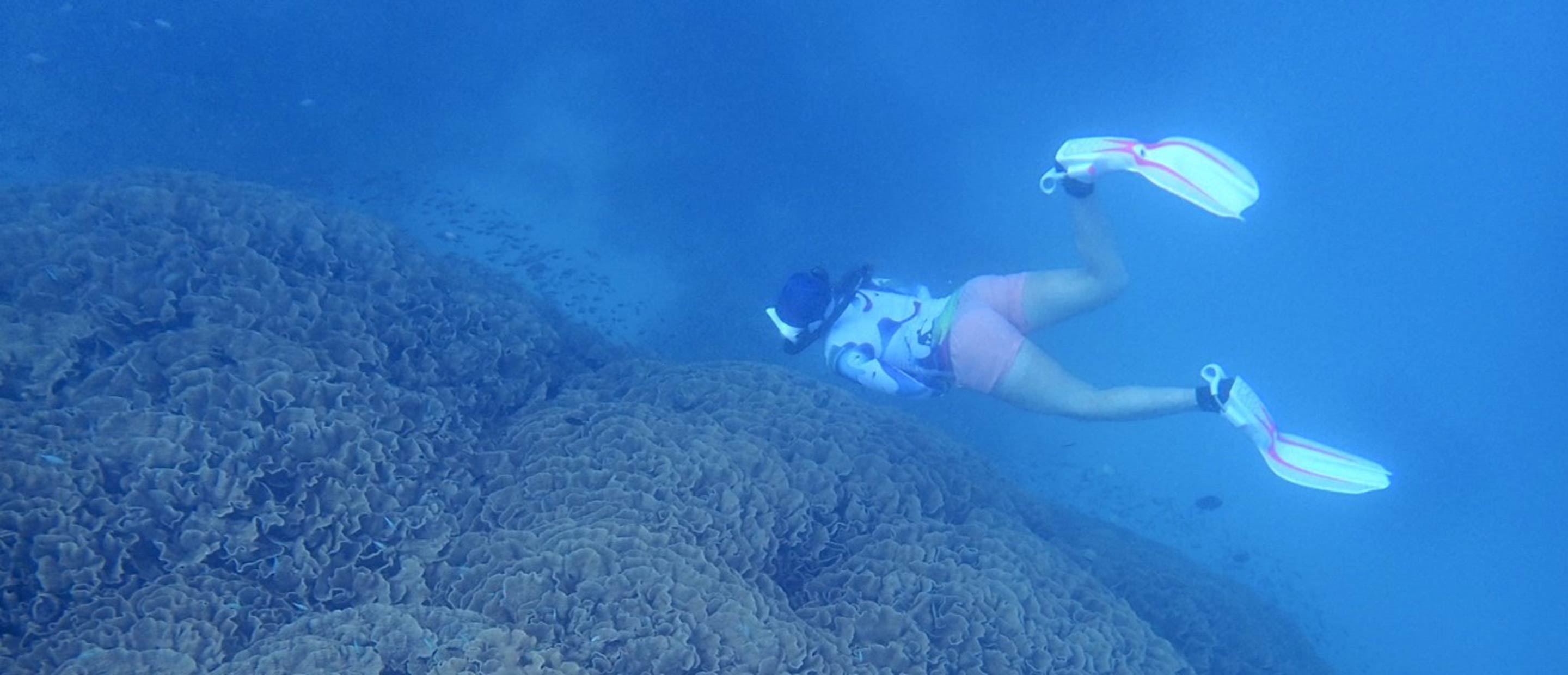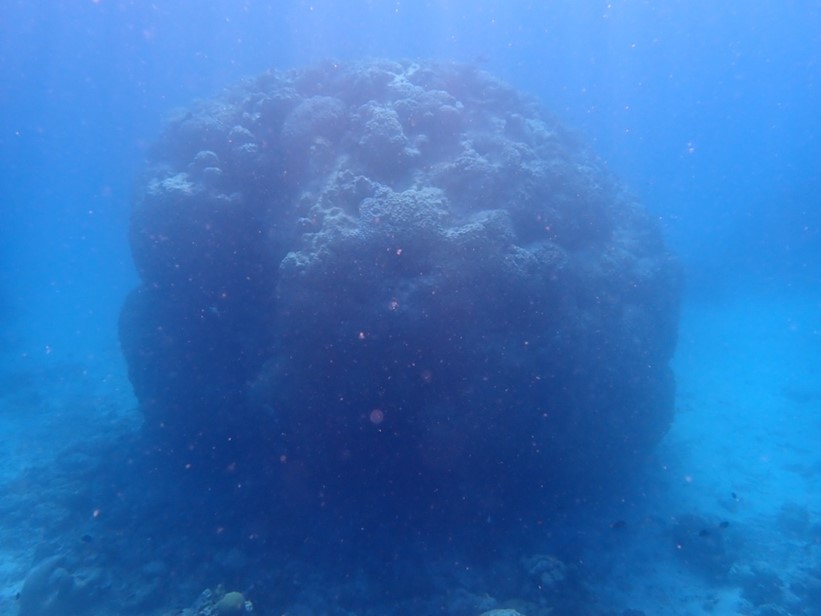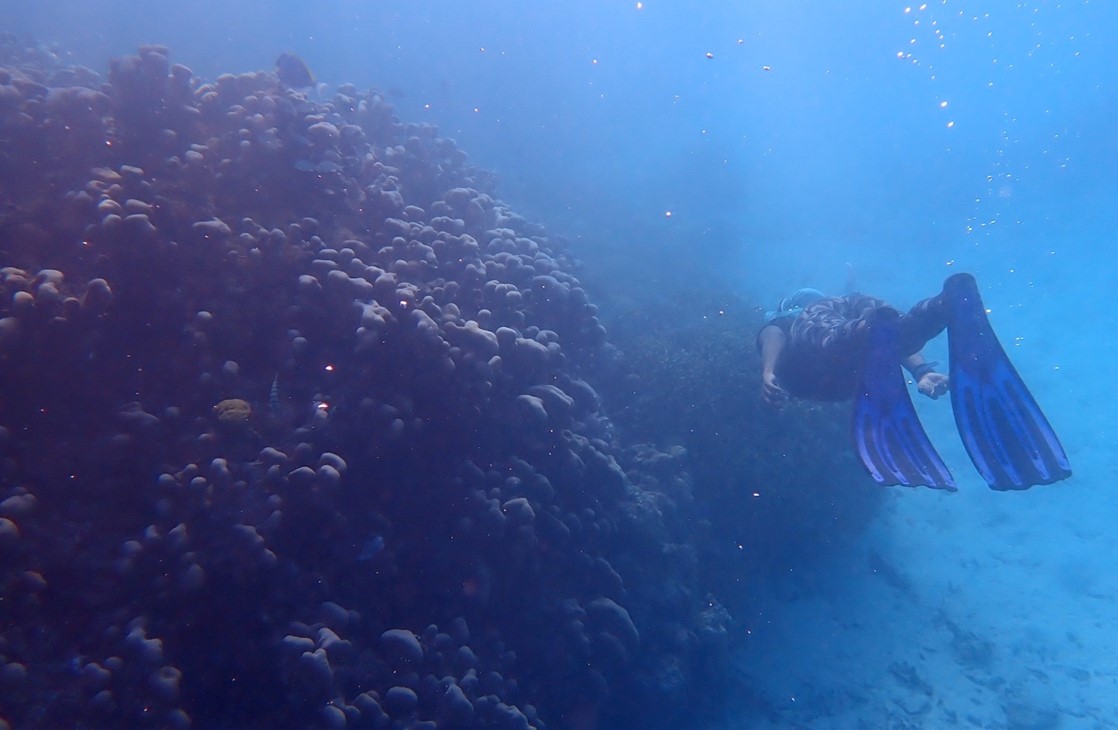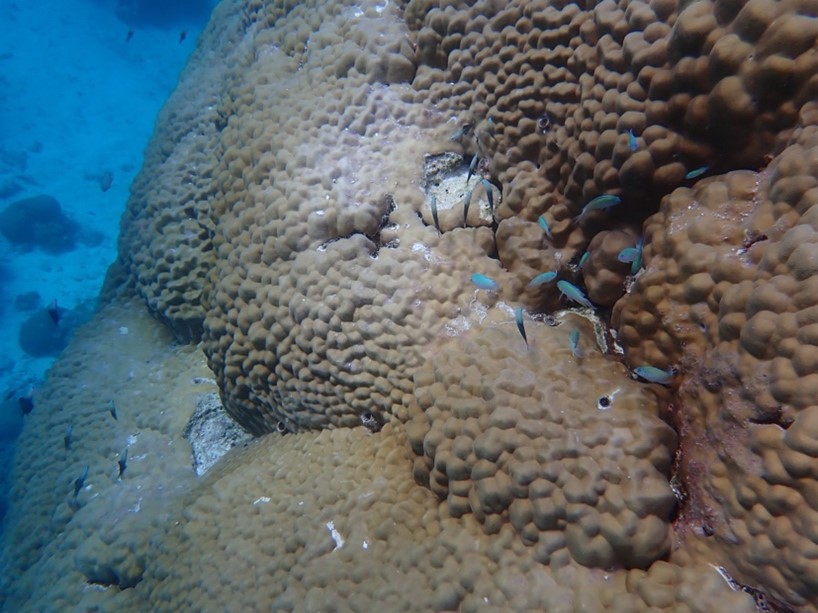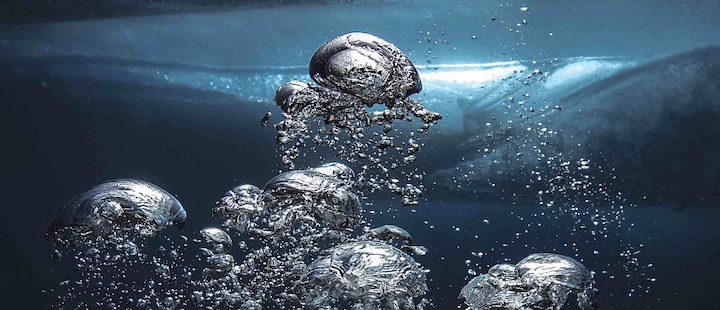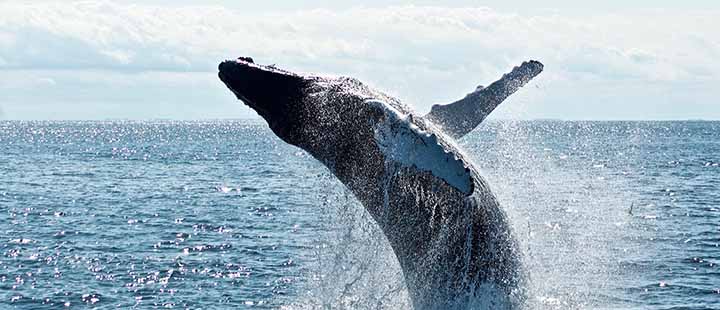Time is running out to save the world’s coral reefs, says Professor Callum Roberts, but new findings suggest we can help them to survive climate change
Professor Callum Roberts has been a diver his whole adult life. As a marine biologist, he’s visited some of the most beautiful and biodiverse marine habitats around the world. Yet even he was stunned when he visited the site of a unique coral colony in the waters off Goidhoo, an atoll in the Maldives, in late 2023.
“The water wasn’t especially clear that day, but even so the sight was just incredible,” he recalls. “It was a bank of coral bigger than a whale shark – a single colony of Turbinaria coral, full of life, that had to be at least 200 years old.” Local fisherman had revealed the phenomenon a few months previously to Aya Naseem, Chief Research and Outreach Officer of the Maldives Coral Institute (MCI), for which Roberts acts as a scientific adviser.
The Great Turbinaria Bank, as it is now called, is not the only giant coral structure in the area. Nearby are various spheres and cylinders of coral that are up to 500 years old –well known to locals but only now being analysed and documented by MCI scientists for the first time.
The MCI is a non-profit organisation founded in 2019 whose core aim is “to help coral reefs survive and adapt to the changing climate”. It operates a test site off Goidhoo where it compares approaches to coral restoration.
“The reason we were visiting was to create a three-dimensional photo-mosaic of the site and the surrounding natural reefs,” Roberts explains. “Over the next eight months, the waters around the Maldives are expected to be hit by a major “heat-stress event”. So, the MCI team wanted the best possible record of the present-day reef, to track the fates of individual coral colonies through this event.
Why and how the Maldives expects its coral to suffer in 2024
“This ocean heatwave is building in the Pacific Ocean at the moment,” Roberts explains. “It’s related to the incredible intensity of hot weather we’ve had over 2023, and to the latest El Niño event [an irregular climatic event that leads to above-average sea surface temperatures].” Across the Maldives archipelago, corals could face another mass “bleaching” episode, turning white as they expel the symbiotic algae that usually live in their tissues (a stress response to the heat), and thereby make themselves vulnerable to starvation.
Yet even with this grim forecast, Roberts sees grounds for optimism. The Great Turbinaria Bank and other giants in the area have survived multiple heat-stress events over the centuries, including the mass coral bleaching events of 1998 and 2016, which devastated Maldivian reefs. “So, this is a place that has had sufficiently benign conditions for coral growth over a very extended period of time, where individual corals have survived and thrived. To see that level of health and growth was like visiting one of the giant sequoia groves in Yosemite.”
The tantalising question raised by the giants, he suggests, is this: Could the ingredients of their success be replicated elsewhere?
“The stability of coral reefs that lasted for thousands of years is no longer with us, and we’re seeing this most clearly in the Maldives – a country that is profoundly at risk from the warming of the world”
Callum Roberts
Professor of Marine Conservation, Centre for Ecology and Conservation, University of Exeter
Why coral resilience is key to a healthy ocean
Finding corals that are resilient to climate change is one of the main objectives of the Future Climate Coral Bank (FCCB), an MCI project backed by the Deutsche Bank Ocean Resilience Philanthropy Fund (DBORPF).
“If we can figure out which species and individual corals are the most resistant to heat stress… we can start using these specifically to propagate from,” he explains. In the best-case scenario, this could enable the restoration of reefs that have suffered from mass die-offs. In the worst-case scenario, it could provide a bank of specimens from which to restore reefs in the future.
“During the Pleistocene Epoch [commonly known as the Great Ice Age], the world’s animals and plants retreated to ‘refuges’ in places such as the Amazon, where they were able to persist. And it was from these places that wildlife recolonised… What we want to do is produce human-assisted refuges that will keep coral reefs going through whatever conditions we encounter as a result of climate change.”
Coral reefs are one of the most important sources of biodiversity on the planet, occupying less than one percent of the ocean floor, yet home to more than 25% of all marine life. As nurseries for aquatic life, they play a vital role in sustaining the fish stocks that humans depend on for food – especially in the developing world. What’s more, they also help to mitigate the effect of storm surges on coastal communities, making their restoration a highly effective “nature-based solution” to the problem of rising seas.
Why 2024 will be a critical year for corals in the Maldives and worldwide
Deutsche Bank is proud to have funded the first phase of the FCCB, during which 65 years of research was analysed to establish how levels of coral cover around the Maldives have changed over time. “What we found is that the Maldives has embarked upon a rollercoaster of collapse and recovery,” Roberts says. “The islands lost around 90% of their corals in 1998, when reefs around the world suffered profoundly from mass bleaching events. They recovered strongly over the next 18 years but were then hit badly again in 2016. Right now, the total level of coral cover in the Maldives is only around 60% of what it was in the early 1990s.”
In 2023, global sea surface temperatures reached record-high levels and some areas, such as the seas around Florida, Cuba, and the Bahamas – saw particularly high temperatures. According to the U.S. National Oceanographic and Atmospheric Administration (NOAA), coral reefs across the wider Caribbean were exposed to more than double the amount of heat stress considered lethal, and the full impact of this disaster will only become apparent in the coming months and years.
Now, in 2024, the Maldives is bracing for a similar situation. Roberts and his colleagues intend to use this grim opportunity to “identify areas and species that survive the best”. But more funding is badly needed to carry out the necessary research and move towards the ultimate goal of setting up a “living gene bank”.
“The Maldives is one of the great coral provinces of the world,” he says. “The conditions for corals to survive through the next century are as optimal here as they can be… There is no agrochemical run-off, there’s no sediment from rivers. It’s one of the most consistent areas of coral growth through geological time, with ancient coral atolls that have grown up over millions of years. So it has the potential to be a kind of ark in which coral can be preserved.”
However, he adds, the viability of the country itself is severely threatened by rising sea levels, which by some estimates could make it uninhabitable within 50 years. The bottom line, he suggests, is this: “If you care about coral reefs – these utterly remarkable, beautiful, magical places that play such a huge role in the global ecosystem – you should care about protecting them in the Maldives in 2024.”
The Deutsche Bank Ocean Resilience Philanthropy Fund (DBORPF) was established in 2021 to support nature-based solutions that restore and conserve ocean habitats. It enables philanthropists to support and collaborate with expert scientists, either via one-off donations or a tailored philanthropic plan. To find out more, please click here.
